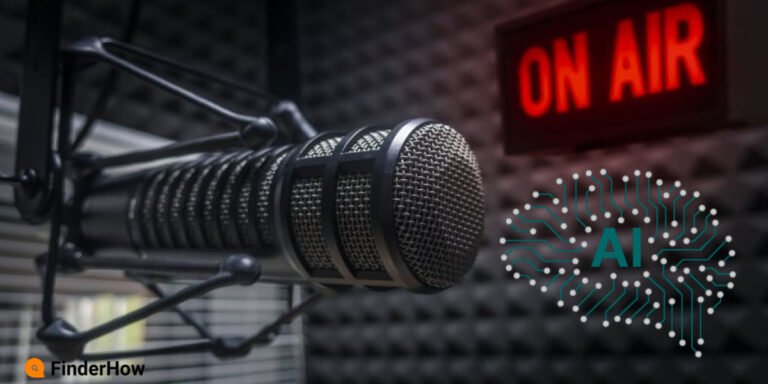How Conversational AI in 2024 Will Change Your Life
Artificial intelligence (AI) has permeated countless aspects of our lives, and it shows no signs of slowing down. One particularly exciting area is the evolution of conversational AI in 2024, led by powerful chatbots like ChatGPT. Let’s explore what the landscape might look like in 2024 and how these technologies are set to change how we interact with the world. https://openai.com/
ChatGPT: A Brief Recap

ChatGPT, developed by OpenAI, is a large language model (LLM) chatbot launched in late 2022. It captured the world’s attention with its ability to hold remarkably human-like conversations, generate different creative text formats, and provide informative answers to complex questions. ChatGPT represents a significant leap in the journey toward conversational AI in 2024 that feels truly intelligent.
How ChatGPT and AI Will Evolve Conversational AI in 2024

Here are some key ways in which we can expect ChatGPT and the broader AI field to advance in the next couple of years:
- Improved Understanding and Reasoning: LLMs like ChatGPT will become even better at understanding and responding to complex prompts and questions. This means more nuanced conversations that feel less robotic and more akin to interacting with another person.
- Multimodality: AI will move beyond text-only responses. Expect ChatGPT-like tools to incorporate images, videos, and audio seamlessly into their conversations. Imagine asking for a summary of a news event and getting a text response accompanied by relevant video clips.
- Increased Specialization: We’ll see specialized AI models emerge focusing on specific areas like medical diagnosis, legal advice, or financial planning. These models will have in-depth knowledge of their domain, providing expert-level conversational guidance.
- Personalization: Conversational AI will become more personalized, tailor-made to your preferences, knowledge, and history. Your AI assistant might know your favorite news sources, your writing style, or even your preferred tone of conversation.
- Widespread Integration: Chatbots will find their way into even more aspects of our daily lives. AI-powered customer service, virtual tutors, and even mental health companions could become commonplace.
The Potential Impact of AI Advancements

These advancements hold the potential to revolutionize various industries:
- Education: Imagine a history tutor that can adapt explanations based on a student’s understanding level, or a language-learning partner that provides instant feedback and correction.
- Healthcare: AI systems could aid in preliminary diagnosis, analyze medical images, and even provide mental health support with tireless availability.
- Commerce: AI-powered chatbots can transform customer service, handling queries 24/7 with efficiency and understanding, potentially enhancing customer satisfaction.
- Creativity: AI tools will become collaborators in creative processes, from generating story ideas and scripts to creating concept art and even composing music.
Focus on the User Experience
- Emotional Intelligence: We might see the beginnings of AI systems capable of recognizing and responding to human emotions. Imagine a virtual therapist that detects sadness in your voice and adjusts its responses with greater empathy. Or what about a customer service bot that senses frustration and prioritizes de-escalation tactics?
- Proactive Interaction: The AI assistants of 2024 might move beyond simply reacting to our prompts. They might proactively offer insights based on our habits, anticipate our needs, or even suggest activities to improve our well-being based on observed patterns.
- Seamless Integration with the Real World: Through augmented reality (AR) and the Internet of Things (IoT), AI might start to bridge the digital and physical worlds. Imagine your smart refrigerator suggesting recipes based on what’s inside, or your AI assistant dimming the lights and playing calming music when it senses you’re preparing for sleep.
Focus on Industry Disruption
- The AI-Powered Workplace: AI will have an increasing presence within workplaces. Expect AI tools that optimize scheduling, analyze data to improve business processes, and generate reports with incredible speed. This revolutionizes how we manage our time and make data-informed decisions.
- The Revolution of Content Creation: AI will supercharge many content creation tasks. Imagine tools that generate near-final news articles, write marketing copy with perfect SEO integration, or create scripts tailored to specific demographics. This will dramatically impact the media and advertising industries.
- AI-Driven Scientific Discovery: In scientific fields, AI could become invaluable. Analyzing vast datasets, running countless simulations, and suggesting novel research avenues. This accelerated pace of discovery could hold breakthroughs in medicine, energy, and material sciences.
Focus on Philosophical Considerations
- The Blurring Line Between Human and AI: As AI becomes more sophisticated and capable of simulating human-like conversations and emotions, it may bring questions about what it means to be human. Will we redefine our sense of unique intelligence in the face of thinking machines?
- AI as a Mirror for Ourselves: Sophisticated AI chatbots reflect aspects of ourselves back at us. Their responses are formed using data we generate, and their biases often mirror our own. This could open up deeper conversations about societal prejudices and blind spots.
- The Question of Regulation: With increased capabilities comes increased responsibility. Who will set ethical guidelines for these immensely powerful AI tools? How do we balance innovation with safeguards to protect individuals and society from potential harm?
Conversational AI in 2024: Challenges and Consideration
Alongside the exciting possibilities, it’s vital to address the challenges and ethical concerns surrounding AI:
- Misinformation: LLMs can confidently generate convincing yet false information. Developers will need to focus intensely on ‘truthfulness’ safeguards to reduce the potential for harm.
- Bias: AI models can reflect societal biases present in the data they’re trained on. Combating this requires careful data selection and ongoing bias-mitigation efforts.
- Job Displacement: AI automation has the potential to displace certain jobs. Addressing this will require proactive societal discussions around reskilling and adjusting to new work landscapes.
- Privacy: As AI becomes more intimately woven into our lives, strong privacy frameworks and individual data control will be essential.
Conclusion: Conversational AI in 2024
By 2024, conversational AI powered by ChatGPT and similar models will likely feel significantly more advanced. This technology has the potential to streamline information access, enhance customer experiences, and spark new forms of creativity. The success of these advancements lies not only in technological progress but in the responsible and ethical guidance of their development and deployment.







